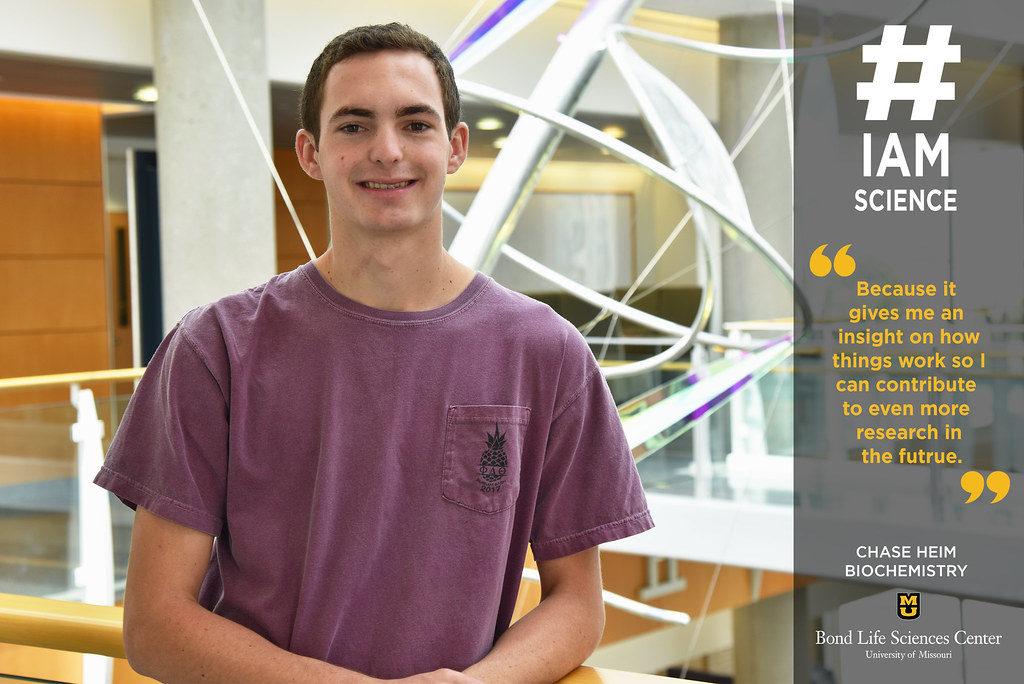By Erica Overfelt | Bond LSC
Chaise Heim wasn’t reluctant in his pursuit of science.
In high school, a program called Triple E gave him his first major exposure to his desired career in the form of an internship. That led him to David Emerich’s lab in MU’s biochemistry department where he spent a cumulative 40 hours during the program.
“From working there, I realized I liked the sciences,” Heim said. “I came to college and continued to work with him, but realized plant science wasn’t the direction I wanted to go, so I talked to my mentors and found the Burke lab and now I love it.”
Heim has worked in Donald Burke’s lab in Bond LSC since January. Being in the lab for almost nine months has taught Heim different perspectives on science.
“I am able to understand so many different scientific methods,” Heim said. “Being in a lab is a different experience than just reciting what you’ve learned in classes. I would argue I have learned more in the Burke lab than in class labs I have taken here at Mizzou.”
By shadowing Ph.D. student Nguyen Phuong, Heim is guided through the processes and given research papers to help comprehend the science.
“Our research is on aptamers,” Heim said. “Aptamers are nucleotides — DNA fragments that are joined together — that we use to bind an active site of the reverse transcriptase, a protein in HIV that changes the RNA into double stranded DNA helix.”
The aptamers are used to bind to HIV protein in the reverse transcriptase.
“The goal is to see if it changes the protein functionality,” Heim said. “Which in the end will help us delay HIV infections.”
Although Heim is starting his sophomore year, he already plans to guide others through research in the future, much like how he is being guided now.
“I want to become a PHD student and guide undergrads,” Heim said. “I know how it feels. You are learning so much, gaining so much material from what they are teaching you and I really cherish that experience.”
Heim applies the skills from the science he’s been taught to involvement in his other organizations
“I have learned how to communicate to an audience and have been taught how to present in a better way,” Heim said. “Biochemistry club also helps you network, which is part of the reason I heard of the Burke lab.”
Heim’s involvement includes Deaton Scholars, the Chancellors Leadership Class and being a TA, the Emerging Leaders Program and Phi Delta Theta Fraternity. Heim said the language of science has pushed him to get more involved in research.
“Being able to talk about my science with people helps me prepare,” Heim said. “The people in these organizations have helped me become better at communicating my research.”


